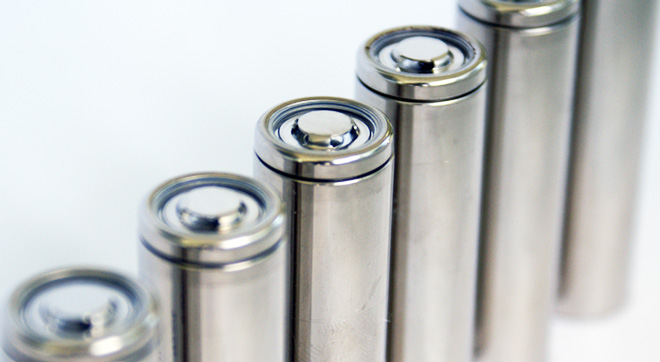Researchers at the University of Waterloo in Canada have developed a way to stabilize lithium metal electrodes by forming a single-ion-conducting and stable protective surface layer in vivo.
In “An In Vivo Formed Solid Electrolyte Surface Layer Enables Stable Plating of Li Metal,” published in the journal Joule, Quan Pang, Xiao Liang and colleagues explain how they used an electrolyte additive complex that reacts with the lithium surface to form a membrane. The team demonstrated stable lithium plating/stripping for 2,500 hours at 1 mA cm-2 in symmetric cells, and efficient lithium cycling at high current densities up to 8 mA cm-2. More than 400 cycles were achieved at a 5-C rate in cells with a Li4Ti5O12 counter electrode at close to 100% coulombic efficiency.
“Herein, we demonstrate a facile and scalable approach to build a single-ion-conducting SEI layer with controlled compositions in vivo (i.e., inside the assembled cell) that maintains complete and intimate contact with the locally uneven Li metal surface,” write Pang and colleagues. “This comprises a thin amorphous Li3PS4 layer formed by using a low-concentration electrolyte additive. It reduces the reactions with the electrolyte and eliminates the heterogeneity of the SEI, thus allowing a non-impeding and uniform Li+ flux.”
“The nature of in vivo formation distinguishes it from ex situ deposition of solid electrolytes (SE), such as atomic layer deposition. More importantly, the Li3PS4 layer is a Li+ single-ion conductor with a theoretical Li+ transference number of unity, which ideally eliminates the ion depletion and strong electric field buildup at the Li surface that inspire dendrite growth. This also contrasts with other types of artificial or additive-driven ion-passivating SEIs. We show experimental evidence of these two important aspects and demonstrate that their interplay allows long-life dendrite-free Li plating.”
Source: University of Waterloo via Green Car Congress




















































